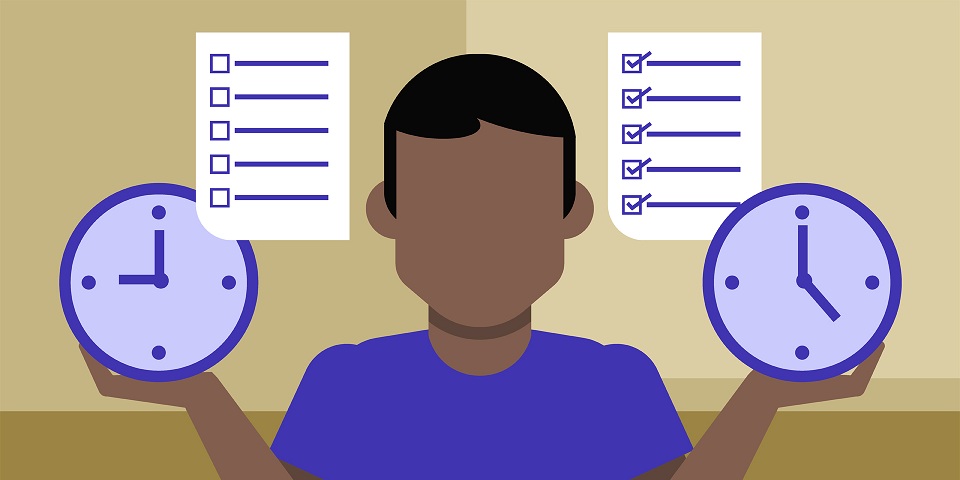
Time Management :
Easy time-management tips :
If you never seem to have enough time, better time management will help you regain control of your days. Whether it’s in your job or your lifestyle as a whole, learning how to manage your time effectively will help you feel more relaxed, focused and in control.
Here are top tips for better time management:
Work out your goals:
"Work out who you want to be, your priorities in life, and what you want to achieve in your career or personal life" . "That is then the guiding principle for how you spend your time and how you manage it." Once you have worked out the big picture, you can then work out some short-term and medium-term goals. "Knowing your goals will help you plan better and focus on the things that will help you achieve those goals".
Make a list:
To-do lists are a good way to stay organised. "Try it and see what works best for you". She prefers to keep a single to-do list, to avoid losing track of multiple lists. "Keeping a list will help you work out your priorities and timings. It can help you put off the non-urgent tasks." Make sure you keep your list somewhere accessible. If you always have your phone, for example, keep it on your phone.
Focus on results :
Good time management at work means doing high-quality work, not high quantity. Emma advises concentrating not on how busy you are, but on results. "Spending more time on something doesn’t necessarily achieve more". "Staying an extra hour at work at the end of the day may not be the most effective way to manage your time."
Have a lunch break :
Lots of people work through their lunch break, but that can be counter-productive. "As a general rule, taking at least 30 minutes away from your desk will help you to be more effective in the afternoon". "Go for a walk outdoors or, better still, do some exercise". "You’ll come back to your desk re-energised, with a new set of eyes and renewed focus." Planning your day with a midday break will also help you to break up your work into more manageable chunks.
Prioritise important tasks :
Tasks can be grouped into four categories:
- Urgent and important
- Not urgent but important
- Urgent but not important
- Neither urgent nor important
People with good time management concentrate on "not urgent but important" activities. That way they lower the chances of activities ever becoming "urgent and important". "The aim is to learn how to become better at reducing the number of urgent and important tasks. Having to deal with too many urgent tasks can be stressful".
Practise the 'four Ds' :
One study found that one in three office workers suffers from email stress. Making a decision the first time you open an email is crucial for good time management.
- Delete : you can probably delete half the emails you get immediately.
- Do : if the email is urgent or can be completed quickly.
- Delegate : if the email can be better dealt with by someone else.
- Defer : set aside time later to spend on emails that require longer action.